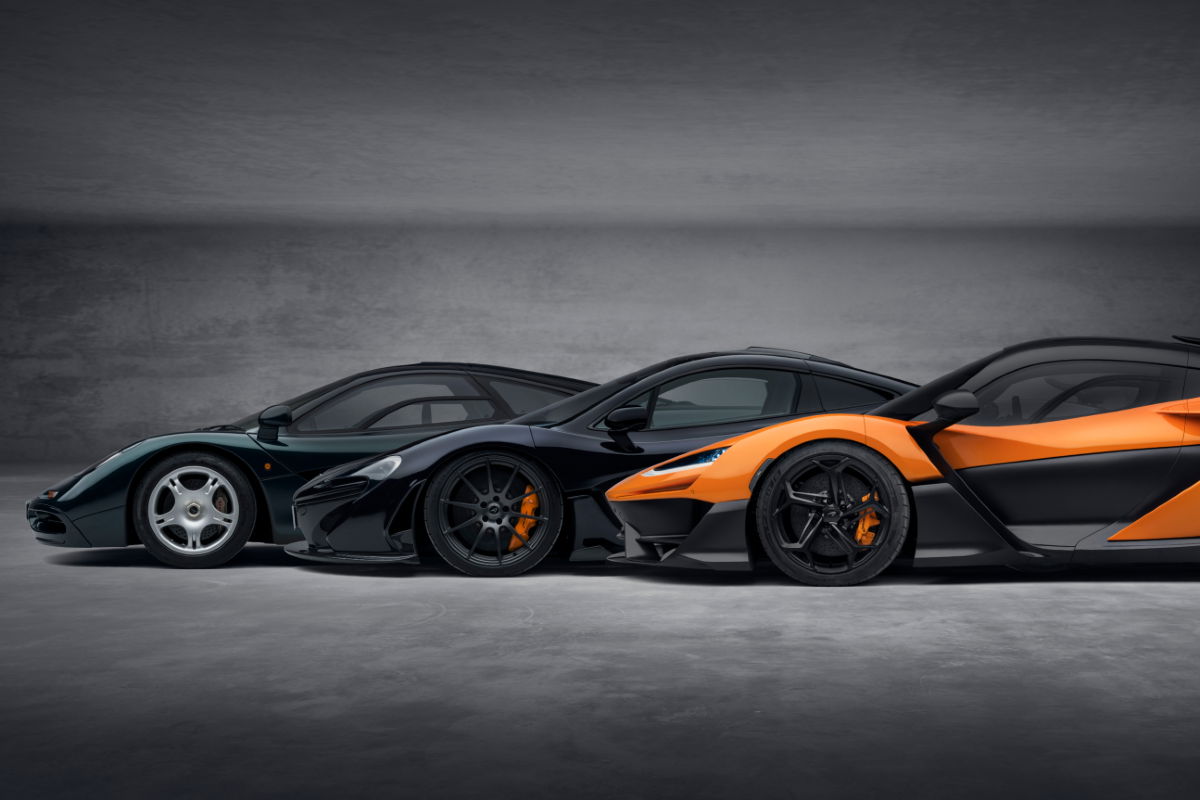
McLaren unveiled its latest and greatest hypercar overnight, the successor to the iconic F1 and P1 models. Known as the W1, it’s the British brand’s fastest and most technologically advanced model to date.
Michael Leiters, CEO of McLaren Automotive said the W1 is designed to celebrate its success both in the supercar market and on the racetrack.
“The McLaren W1 is a celebration of both the excellence of the iconic McLaren F1 and McLaren P1 and the manifestation of McLaren’s World Championship mindset,” Leiters explained. “With our new Ultimate supercar, we are again pushing the boundaries of real supercar performance with an epic hybrid powertrain featuring our all-new MHP-8 V8 engine, the most advanced aerodynamic platform of any McLaren road car and extensive use of advanced lightweight materials. This allows us to engineer a supreme track driving experience from the same car that gives unparalleled driving enjoyment on the road.”
Here are the five key details you need to know about the McLaren W1.
VIDEO: Mika Hakkinen and McLaren reunite
Familiar name

The name will be familiar to Australian car fans, as the HSV GTSR W1 was the final locally-made Commodore special produced by the company. However, the name is obviously not inspired by Holden, but instead carries on the “1 car lineage” from the F1 and P1 ‘Ultimate Series’ cars, while also celebrating McLaren’s “World Championship mindset” – highlighted by its unveil on October 6, the 50th anniversary of Emerson Fittipaldi’s world title with the team.
READ MORE: Sold – Why McLaren’s new owners are a big deal
Powerful is an understatement

As we previously reported, the W1 is powered by an all-new High-Performance Hybrid powertrain, which combines a new 4.0-litre twin-turbo V8 engine with a powered electric motor.
The total output of this set-up is a staggering 938kW of power (that’s 1258hp, if you prefer) and 1340Nm of torque.
READ MORE: Meet the old Le Mans engine powering modern McLarens
Surprisingly, McLaren has avoided the modern trend for using the electric motor to drive the front wheels for eAWD, and instead all that grunt is fed to the road through the rear wheels.
Not that McLaren has ignored the electric motor altogether, it’s used to drive the car in reverse, allowing for the eight-speed transmission to focus on going forward.
Faster than fast, quicker than quick

The constant pursuit of progression means the W1 is faster than any previous McLaren model, simultaneously being faster than the streamlined Speedtail to 300km/h and quicker around a racetrack than the hardcore Senna.
The numbers published by McLaren are seriously impressive, 0-100km/h takes just 2.7 seconds; 0-200km/h comes up in 5.8 seconds and 0-300km/h a remarkable 12.7 seconds, while the top speed is electronically limited to 350km/h.
It’s loaded with F1 tech

Given the success of McLaren Racing in Formula 1, McLaren Automotive is taking advantage of its connections and knowledge to load the W1 with some state-of-the-art technology from the racetrack.
McLaren claims this is the most advanced active aero features ever in one of its road-legal models.
This includes F1-inspired ground effect aerodynamics that combines with ‘McLaren race mode’ to give the W1 the ability to lower by 37mm at the front and 17mm at the rear when you hit the track to add up to 1000kg of downforce.
There’s also the McLaren Active Long Tail rear wing, which can extend back by 300mm to help with its aero grip.
The front suspension is also F1-derived, mounted directly to the car’s ‘Aerocell’ monocoque, and can even be seen through the bodywork.
You (probably) can’t afford one

With apologies to the billionaires reading this, the W1 is probably out of most people’s reach financially. Just 399 will be built and will start at an eye-watering £2 million ($3.8m), and that’s before you start to customise it with McLaren’s MSO personalisation department. But if you think that makes them a tough sell, you’d be wrong, McLaren has claimed every example of the W1 has already been allocated to a buyer.



















Discussion about this post